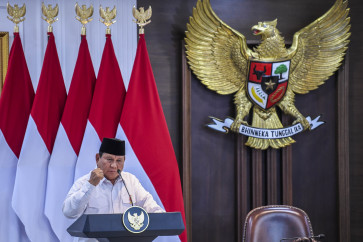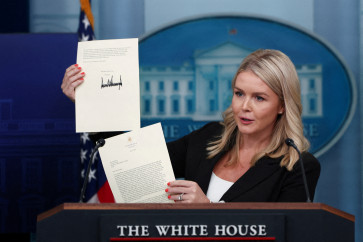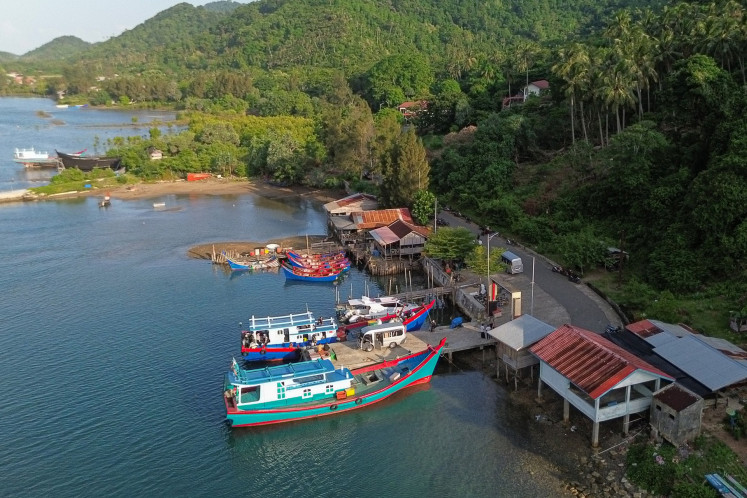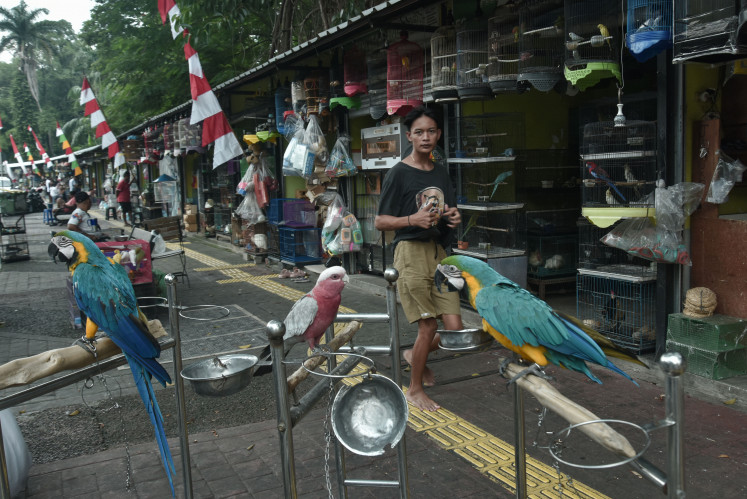Popular Reads
Top Results
Can't find what you're looking for?
View all search resultsPopular Reads
Top Results
Can't find what you're looking for?
View all search resultsCollaboration key to ASEAN sustainability
All political and business leaders in Southeast Asia should be united in working together to maintain social, economic and environmental sustainability to protect peopleâs interests in the region, a leading businessman has said
Change text size
Gift Premium Articles
to Anyone
A
ll political and business leaders in Southeast Asia should be united in working together to maintain social, economic and environmental sustainability to protect people's interests in the region, a leading businessman has said.
Thailand-based cement producer Siam Cement Group (SCG) president and CEO Kan Trakulhoon said that as ASEAN was now an engine of world economic growth, more investors should be willing to invest their money in the region in the near future.
'Nowadays, businesses cannot just make profits, they must collaborate with each other to protect the environment and people in line with the sustainability path,' Trakulhoon told the 2014 ASEAN Sustainability Development Symposium in Bangkok, Thailand, on Friday.
Instead of waiting for the government to act, he urged companies operating in Southeast Asia to take initiatives to establish green policies.
'Business leaders are faster than those in government when it comes to the decision-making process. Thus, they must use that particular benefit to establish policies on sustainable development to protect people and the environment. We in ASEAN should become a role model for global sustainable development,' he added.
More than 1,000 representatives including executives from multinational firms, NGOs, private as well as state and regional financial institutions and academics attended the 4th SCG-organized forum to share their best practices on green development.
SCG sustainable development division head Roongrate Rangsiyopash said that in its efforts to increase sustainable growth in Thailand, and other countries where it had branches, SCG ensured that its trading partners as well as its suppliers were also committed to green practices.
'Since 2006, we have been the first company to pioneer the use of waste-heat power generation [WHG]. In our factory in Lampang [in Bangkok], we use the WHG system so that we can produce our own electricity to reduce our dependence on state electricity,' Rangsiyopash said.
Also attending the forum, ASEAN Secretary-general Le Luong Minh said that as the 2015 ASEAN Economy Community (AEC) was around the corner, ASEAN policymakers as well as businesses leaders needed to address critical sustainable development challenges confronted by the region.
'More so than ever, there is an urgent need to understand the parameters of sustainability and the resilience needed to take on the defining and life-changing issues of our time such as climate change, water scarcity and food and energy concerns,' Minh said.
ASEAN, which has a total population of 625 million people, is home to around 40 percent of fauna species on earth as well as home to around 80 percent of global biodiversity which is mostly located in Indonesia, Malaysia and the Philippines.
Although ASEAN is been regarded as a lucrative place for business investment, as many as 185 million of its population still earn less than US$ 2 per day. 'Efforts to alleviate poverty, providing adequate shelter and food as well as boosting national economies should go hand in hand with protecting the environment,' Minh said.
Yvo de Boer, director of the Seoul-based Global Green Growth Institute praised ASEAN countries for making progress in formulating green regulations to protect the environment. However, he also criticized them for not seriously implementing those policies.
'The making of green policies in ASEAN has made progress but it lacks implementation. ASEAN is not immune to global changes, thus, ASEAN countries should be prepared for any damage that might be caused by global changes. Remember how Typhoon Haiyan paralyzed the Philippines?' de Boer said.
According to the UN's 2013 Global Corporate Sustainability report the majority of business sectors in the world agreed to apply sustainability standards in their operations.
The report also urged businesses in the world to protect and respect internationally proclaimed human rights as well as protecting workers and increasing efforts to eliminate any kinds of corruption including extortion and bribery.










